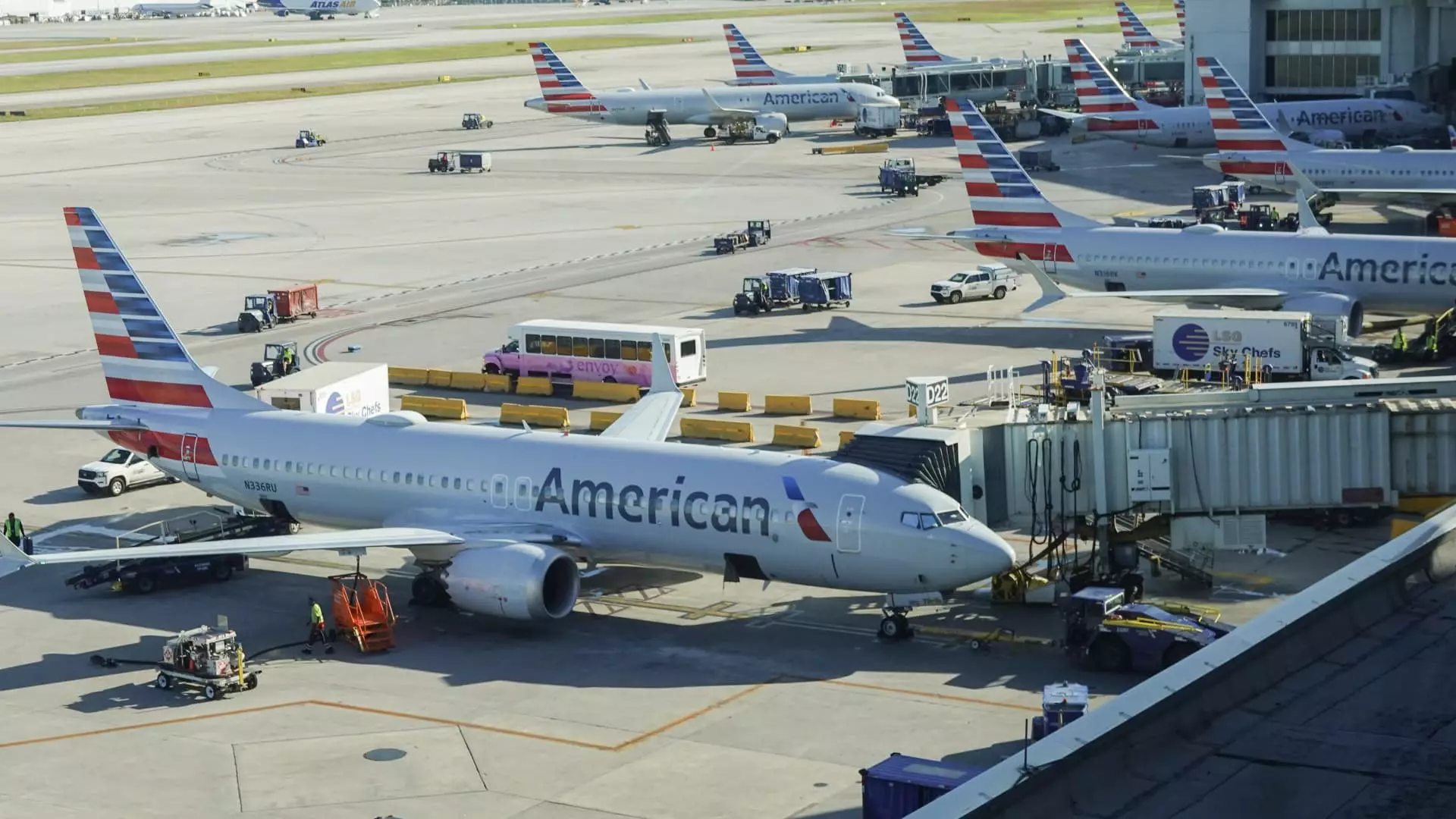On Tuesday morning, American Airlines ground its U.S. flights due to a technical malfunction, sparking concern among travelers during an expected peak holiday season. Though the halt lasted less than an hour, it demonstrated the fragility of airline operations and the potential impact on passengers’ plans. By 7:55 a.m. ET, the airline informed outlets such as CNBC that the ground stop had been lifted, allowing flights to resume their schedules.
American Airlines attributed the disruption to a network hardware issue associated with DXC Technology, a vendor responsible for the maintenance of its flight operating system. This system is indispensable as it integrates critical data, including aircraft weight and balance — all necessary components before any flight can depart. This incident raises an important question: How resilient are airlines when faced with technical problems that can paralyze operations?
The brief ground stop highlighted that even minor technical glitches could create a ripple effect, especially during peak travel times. Thousands of passengers could potentially experience delays or inconveniences, which could manifest in myriad ways — from missed connections to extended waits at the airport.
The Federal Aviation Administration (FAA) stated that the ground stop was initiated at the request of American Airlines to mitigate chaos at destination airports. Such proactive measures illustrate the airlines’ understanding of managing air traffic and ensuring that airports do not become overwhelmed. Historically, ground stops have been instituted not only for technical issues but also in response to severe weather conditions, emphasizing the delicate balance that airlines must maintain between operational efficiency and customer convenience.
The incident also brings to light the broader implications regarding the reliability of technology platforms used by airlines. Recent years have seen significant disruptions across various airlines, from Southwest’s operational meltdown during the 2022 holiday season to Delta’s challenges arising from technological failures. Each incident serves as a reminder of the pressing need for airlines to continually reassess their infrastructures, seeking ways to enhance resilience against any future operational hiccups.
While American Airlines maintained that there were no cancellations related to the technical issue, the experience serves as a cautionary tale. For airlines and travelers alike, the landscape of air travel remains unpredictable. With increasing demand during busy travel windows, stakeholders must consider improving technological reliability to prevent similar disruptions from affecting future operations.
As American Airlines swiftly resumed operations, their apology to affected customers indicates a recognition of their responsibility toward passenger satisfaction. Moving forward, airlines must not only invest in upgrading technological systems but also establish robust contingency measures to handle unexpected downtimes. With the holiday season fast approaching, ensuring smoother operations will be paramount, allowing passengers to navigate their travel experiences with greater ease and confidence. In a world where travel is increasingly critical, the partnership between technology and customer service will define the future of air travel reliability.

